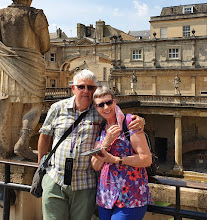Apart from being engulfed by the CV-19 pandemic we are now caught in the maelstrom of the Black Lives Matter (BLM) movement and all the protests initially caused by the murder of (black) George Floyd by a (white) policeman Derek Chauvin. The protest movement appears to have taken on a life of its own and in a few instances has been subverted by people more interested in rioting and looting than by those trying to right a great wrong.
Nevertheless the vast majority of the protesters are focussed on righting the wrongs of the past and those that are still happening today in many (all?) countries across the globe.
One of the symbols of the protests has been focussed on removing statues and place/street names honouring people who were slave traders. It has been pointed out that some of the slavers did many philanthropic acts; this is countered by so did Jimmy Savile but we don't erect statues to him. It should of course be pointed out that what Jimmy Savile was illegal whereas slavery was, at that time legal (still abhorrent and an affront to any decent human being). Slavery might now be illegal but if anyone believes that it is abolished they have not being paying attention to events around the globe.
So this leads onto the question of should we judge the past by the standards of today? There are thousands if not millions of people who were punished for committing acts that were illegal at the time but which are legal today. Homosexual acts spring to mind; over the centuries may people were imprisoned for carrying out these. Some have been posthumously pardoned, Alan Turing springs to mind. He did break the law and was cruelly punished. Should he have been and should all the others that were similarly barbarically treated be pardoned? They knew that what they were doing was illegal at that time and were caught and punished. In some cases the cruel incarceration gave rise to great art, De Profundis and the Ballad of Reading Gaol are two works by Oscar Wilde that spring to mind.
Many people were transported to Australia for committing acts that today would warrant no more than a slap on the wrist at the local magistrates court. Turing and some 50,000 others including Wilde have been pardoned, but this doesn't ease the pain and degradation that they suffered at the time.
Cecil Rhodes is now coming under attack and there are increasing cries for his statue to be removed from where is is sited in Oxford. Oriel College decided not to remove the statue in High Street in 2016 and said the figure "was a reminder of the complexity of history and of the legacies of colonialism".What will happen today is anyones guess, although if I were a betting man I would bet that it will be removed.
So how should we judge the past and how we should we teach it? How many today are taught about the Tolpuddle Martyrs? Their great bravery helped lay down the foundations of the trade union movement and the great reforms in working practices that are still prevalent today, although under constant threat. The present is built on the past for good or ill. We most certainly should not forget it or else we will be destined to repeat it.










No comments:
Post a Comment